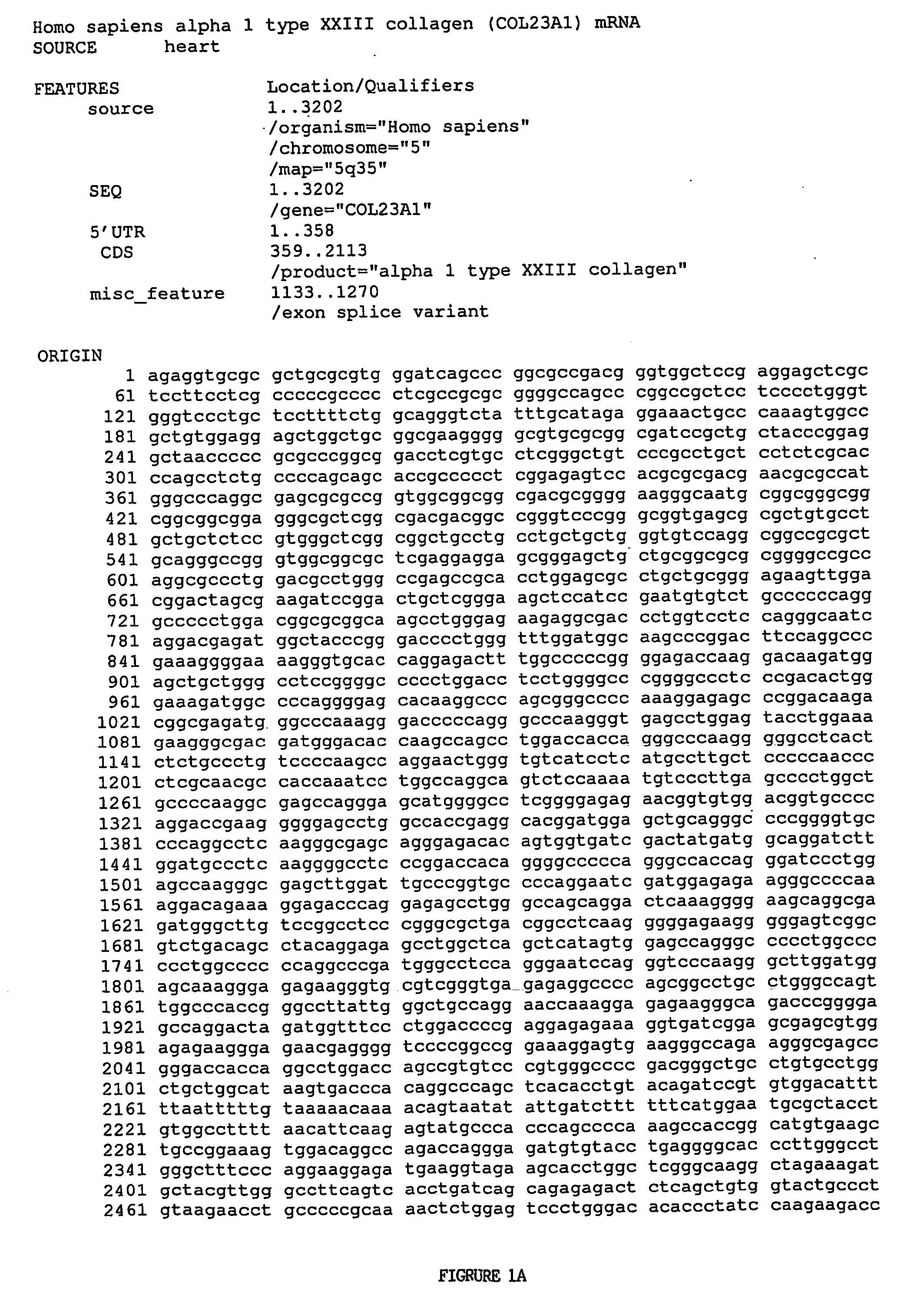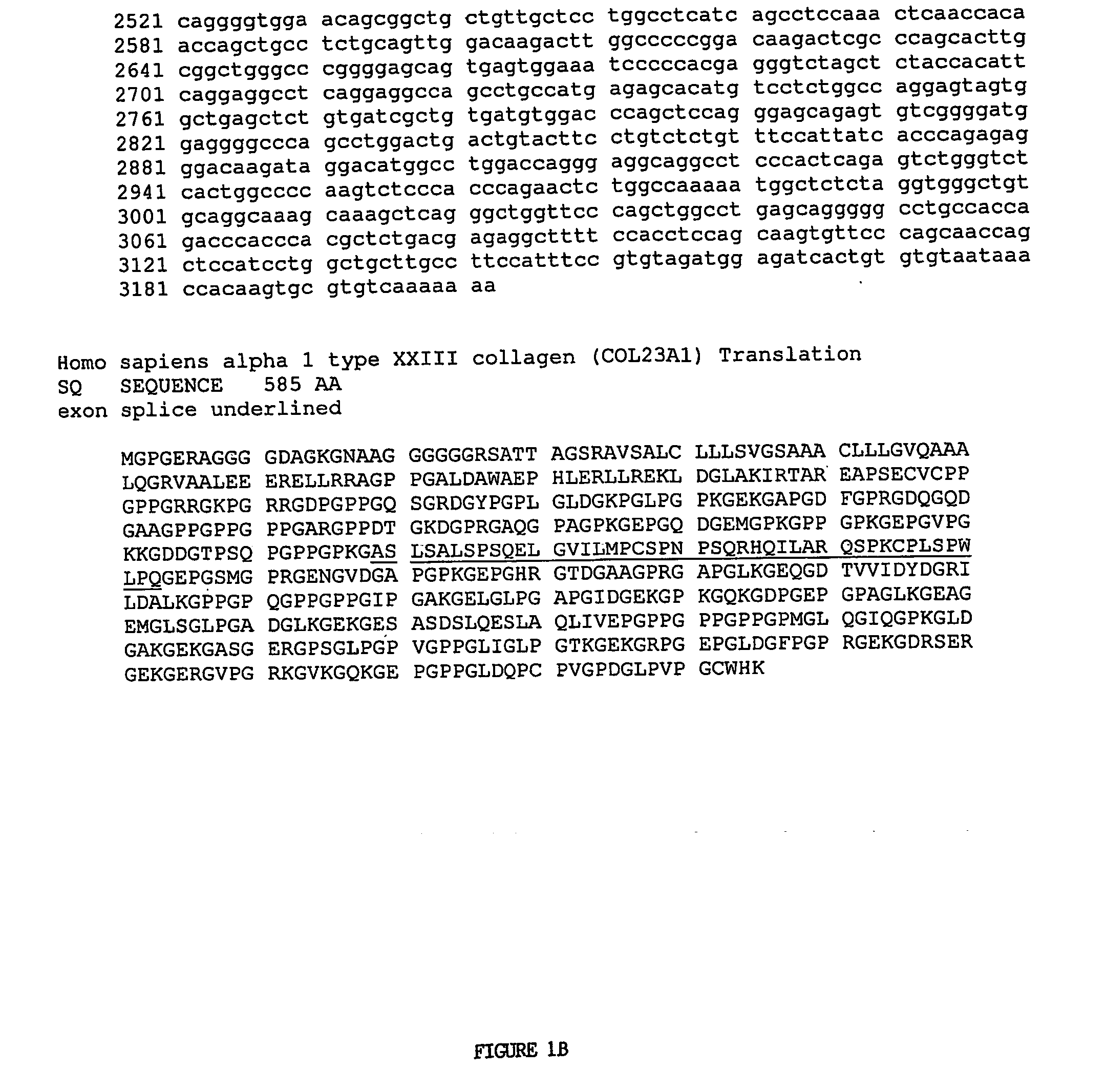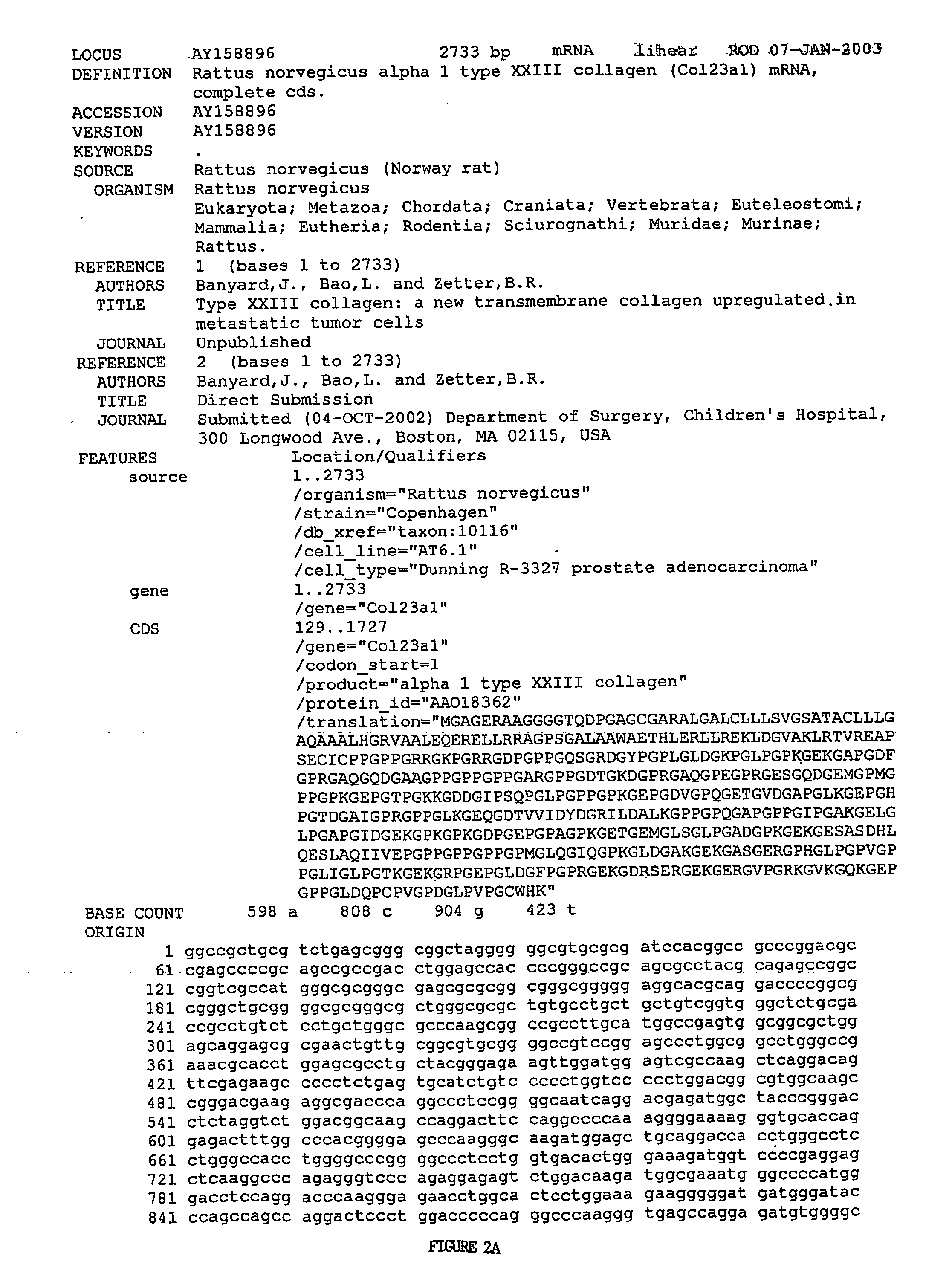Methods for diagnosis and prognosis of cancer
- Summary
- Abstract
- Description
- Claims
- Application Information
AI Technical Summary
Benefits of technology
Problems solved by technology
Method used
Image
Examples
example 1
[0161] To search for genes involved in tumor metastasis, we compared gene expression between the well-characterized Dunning 3327 rat prostatic adenocarcinoma low-metastatic subline AT2.1 and high-metastatic AT6.1 using the differential mRNA display technique. We isolated a cDNA fragment representing mRNA that was expressed in the high-metastatic subline, AT6.1, but not in another high-metastatic subline AT3.1, nor in the low-metastatic subline AT2.1. The expression pattern shown by differential display was confirmed by RT-PCR and Western blot analysis.
[0162] In order to isolate the full-length cDNA of this gene, the cDNA fragment obtained from the differential display was used as a probe to screen an AT6.1 λgt10 cDNA library. Two positive clones were obtained, which contained 5′-end truncated sequences. To recover the missing sequence of the 5′-end of the cDNA, we used Rapid Amplification of cDNA Ends (RACE) PCR method. The 5′end was completed by the PCR based method of Rat Genome ...
PUM
| Property | Measurement | Unit |
|---|---|---|
| Length | aaaaa | aaaaa |
| Level | aaaaa | aaaaa |
Abstract
Description
Claims
Application Information
 Login to View More
Login to View More - R&D
- Intellectual Property
- Life Sciences
- Materials
- Tech Scout
- Unparalleled Data Quality
- Higher Quality Content
- 60% Fewer Hallucinations
Browse by: Latest US Patents, China's latest patents, Technical Efficacy Thesaurus, Application Domain, Technology Topic, Popular Technical Reports.
© 2025 PatSnap. All rights reserved.Legal|Privacy policy|Modern Slavery Act Transparency Statement|Sitemap|About US| Contact US: help@patsnap.com



